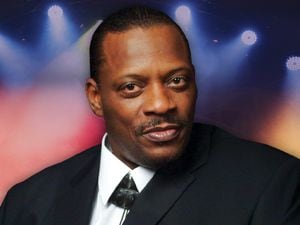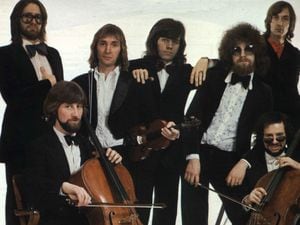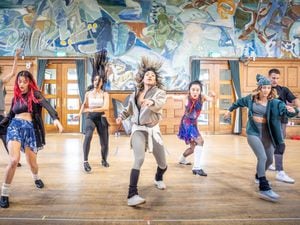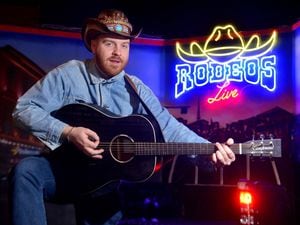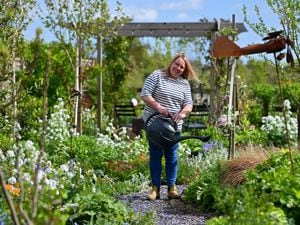Sir Roger Moore talks about Bond and his upcoming Grand Theatre show in Wolverhampton - interview
Brilliant Bond and all-round nice guy, it's Sir Roger Moore. We're left shaken but not stirred...
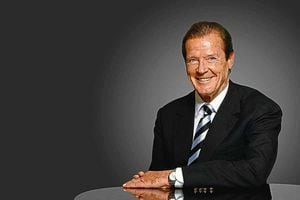
The name's Moore. Roger Moore. But you can call me Sir."
Roger doesn't start our conversation like that, though he'd be forgiven if he'd done so. He is one of the last great British actors, a man who belongs to a golden age of glamour and style.
He's been a box office sensation for 70 years, was many people's favourite ever Bond, and divides his time between homes in Monaco, Switzerland and the South of France.
He is friends with royals, has a star on the Hollywood Walk of Fame and was made a CBE in 1999 and a KBE in 2003. In his spare time he is a Goodwill Ambassador for the charity Unicef. Oh yes, and he made iconic movies as the world's favourite secret agent, 007, from 1973 until 1985. They included many of the best Bond films ever made: Live and Let Die, The Man with the Golden Gun, The Spy Who Loved Me, Moonraker, For Your Eyes Only, Octopussy and A View to a Kill.
So Sir Roger would be perfectly entitled to begin our conversation by pulling rank. But he does quite the opposite.
"Good morning," he offers, in that distinctive Hollywood Gold voice. "And how are you today?
"It's Andy, isn't it. I bet that comes in (h)andy. . ."
He laughs at the dryness of his own joke.
"I'm sorry, you must be bored of people saying that."
He's a charmer. Twentyfour carat gold.
Sir Roger's coming to Wolverhampton on November 17 for 'An Afternoon With. . .' at The Grand Theatre. The 89-year-old will be celebrating his 71 years in showbusiness by chatting to biographer Gareth Owen.
"The audience will greet me with thunderous applause and if they do not I shall cry and go home."
It's only one minute into the interview and already he's cracked two jokes.
"No, that's not what will happen. I'm looking forward to it.
"During the first half, we talk about the early part of my career until the audience gets really bored and starts to want a drink."
Stop. It. Roger. Try to be serious for just a moment.
He laughs. "It's true."
The show is hosted by Sir Roger's biographer, Gareth Owen.
"He knows more about me than I know about myself. And if he doesn't know it he makes it up and lies."
Boing Boing. Joke Number Four.
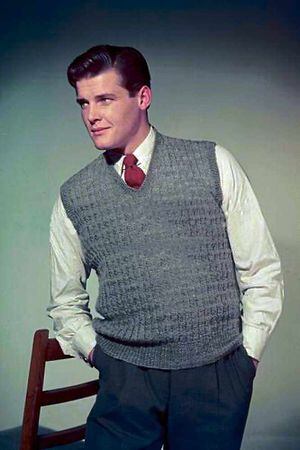
"As I was saying, the audience get a little thirsty so we allow them to go to the bar while Gareth and I have time to refresh.
"When they come back they are in a much better mood and we then talk about Bond and invite questions from the audience. The intention, of course, is that everybody has a good evening."
It's hard to imagine how anyone might not.
"The theatre shows keep me off the streets and it's wonderful to go down memory lane. Every night is different. I find out things about myself that I had forgotten. You talk about a smell or a sound or a word and suddenly you have been transported back in time: you just have to hope that you return from wherever it is you've been."
Sir Roger will be making his first visit to the Black Country. "I have to admit, Wolverhampton is a city that I've never been to."
He says it with a wry smile that's straight from the script of 007. He is the archetypal English man, a gentleman with the finest manners. "But nothing's off limits. We talk about everything I did."
Including the wives? Sir Roger's had more than his fair share – four – and unexpectedly, he was frequently the victim of their domestic abuse, rather than being the perpetrator. Sir Roger was punched, kicked and hit over the head with a guitar, among other things. Rather than striking back, he soaked up the blows.
"There's not too much on the wives," he says, and suddenly the good humour evaporates, as though it's been sucked out of the room by a Dyson.
"It depends on the evening. . . and the mood I am in."
Besides, why dwell on the past when the present is so rosy? "I have to be careful because my wife comes to the show every night and every afternoon."
There's a pause. . . "She doesn't trust me."
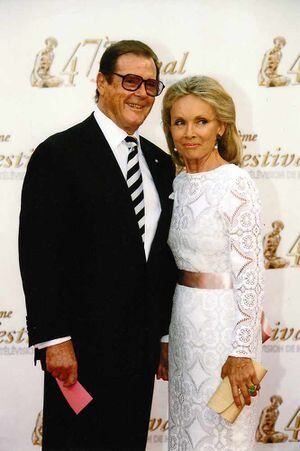
And suddenly the mood lightens and he's telling jokes once again.
Inevitably, it's recollections of Sir Roger's Bond years that most people want to hear about. He was a contender for the role in 1966, when Sean Connery decided that he might not play 007 any longer. All things come to those who wait and though Sir Roger missed out to George Lazenby's 1969 portrayal in On Her Majesty's Secret Service and to the returning Connery in 1971's Diamonds Are Forever, he finally got the gig for 1973's Live and Let Die.
Producer Albert 'Cubby' Broccoli told him to cut his hair and lose weight – instructions that Sir Roger resented – but the two became great friends as their personal and professional relationship blossomed.
Indeed, it was the people he worked with – rather than the fast cars, girls and high living – that Sir Roger loved most about his Bond years.
"They were great years and great films to be doing. I had the most wonderful time. On each film, it was mainly the same people working – and I'm not talking about the cast, I'm talking about the crew members. So each time we started a new film it was like going back to visit family. It was a family. The producer for most of my films was a wonderful character, Cubby Broccoli, and he was a very dear friend. I miss him enormously. It was a lot of fun and a lot of laughs and sometimes we were probably a little naughty."
Asking Sir Roger to pick a favourite Bond movie is, one suspects, a bit like asking a mother or father to pick a favourite child. Happily, he doesn't flat bat his reply by offering meaningless platitudes and blathering about all things being equal.
"Oh, let me see. The Spy Who Loved Me was the one. That film, in particular. I thought it was the better of the Bond films I made. Lewis Gilbert was a wonderful director and great friend and we laughed from morning until night."
Things were more glamorous on set than off, though Sir Roger, Barbara Bach, Curd Jurgens and others had a blast. "Sometimes you could have turned the camera around, but perhaps not. Off set it wasn't so glamorous."
Becoming Bond changed Sir Roger's life. He'd been no slouch up to that. A couple of years before he'd played alongside the great Tony Curtis in The Persuaders!, which told the tale of two millionaire playboys making their way across Europe. He was paid the unheard-of sum of £1 million per series. Earlier, he'd earned worldwide fame as Simon Templar in The Saint, which ran from 1962 to 1969. There had been numerous movies and TV shows, including the successful 14-episode Maverick and hit films with MGM, with whom Sir Roger signed a seven-year contract. It was a decent haul for a good looking guy who'd earned his earliest pay cheques by modelling knitwear in the early 1950s.
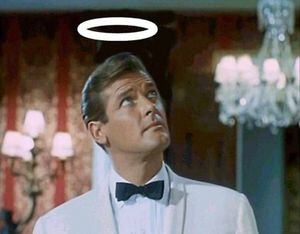
Bond, however, came to define him. "There's been 50 years of it and it's part and parcel of British culture. It's the same in other countries too, where it remains incredibly popular. They do Bond weeks on some TV stations in the USA and it's customary to watch a Bond movie at a particular time of year. I've always been treated very courteously wherever I go in the world. And my wife is always amused to be called Mrs Bond."
But while Bond is the foundation on which Sir Roger's story is built, there have been other chapters that have been equally fulfilling. His friend, the iconic Audrey Hepburn, encouraged him to become a Unicef Goodwill Ambassador in 1991, after talking to him about her work for the charity. Sir Roger also protested with Peta against foie gras, leading to Selfridges to remove it from their shelves. His work as a Goodwill Ambassador for Unicef was the reason for his instalment as a KBE.
"I keep up with all the Unicef reports and when I can I also do fundraisers. We don't travel as much as we used to because physically we are unable.
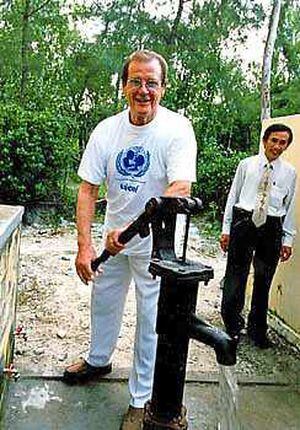
"But I find that hugely important. Asking why I do that is rather like asking (Edmund) Hillary 'why do you want to climb Everest?' The answer was: 'Because it was there.'
"For me, it's because those children are there and have been from long before I was born and will be long after I have gone.
"There will always be children who are underprivileged and in danger of certain diseases or exploitation. The year I joined Unicef as a Goodwill Ambassador was the year of the Rights of the Child being ratified. Under the rights of the child, each child is entitled to play, love, education, good health and they deserve to be happy. Unfortunately there are literally millions and millions of children in the world that need our help.
"They asked me to go to Lithuania a few years ago to explain to a country that had suffered a Russian occupation and had its own needs, why they should be giving money to help others when they were in need themselves.
"I tried to explain it by saying that if you are sitting in your house or your room and your table is set for the four children and your wife and you each have food, then also imagine this. At the end of the table there is a window and through it you can see the house next door. There is no father in that house. He may be away or he may have been killed in a war. So that family of a mother and four children don't have anybody to bring food home. Now, this is the question: Do you pull the curtains so you can't see them or do share your food?"
In Sir Roger's case, he asks them round to his place.
"It's people like that who are being looked after through the charity."
It's been a remarkable, successful, tumultuous but largely happy life. Sir Roger is wry and amusing, thoughtful and kind. He's also engaging and warm; going off piste and answering whatever's asked of him rather than sticking to the script. It's noticeable how different his stories are in different interviews and in his books: Sir Roger doesn't just 'phone it in.' He's a participant and he's a worker, rather than being a dilettante.
"When I look back over my life, I don't think I would want to change anything, whether it's been bad or indifferent. When you think of it all, you just have to say that that's what makes life.
"Certainly, having children of my own was one of the greatest things in my life. Tomorrow is my daughter, Deborah's, 53rd birthday. Because we will be Ireland touring and promoting the theatre shows, we won't be able to share her birthday with her. But we had a little birthday dinner yesterday.
"When she was born, I smiled for six weeks. My lips never came together. I was just flashing my teeth for so long."
Professionally, he views Bond as being a gift, though it is the people who he met along the way that sticks in the mind, rather than the success it brought.
"I think of the people I worked with most of all. David Niven was wonderful, of course, and we made a number of films together. I got along very well with Andrew McLaglen, a director, and Lewis Gilbert, who directed The Spy Who Loved Me.
"There are many people I look back on with great fondness."
And, in years to come, many people will look back with great fondness on a man who is indisputably one of the all-time greats.
Welcome to Wolverhampton, Sir Roger.
An Afternoon with Sir Roger Moore is on at Wolverhampton Grand Theatre, Thursday, November 17, at 2.30pm. Tickets cost from £20.50.
Visit www.grandtheatre.co.uk or call 01902 429212.
By Andy Richardson

